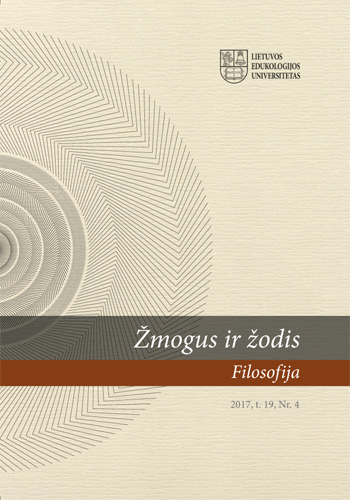Thou Shalt not Kill, Steal, and Lie: A Preliminary Study on Cognitively Salient Moral Transgressions among Lithuanians
Thou Shalt not Kill, Steal, and Lie: A Preliminary Study on Cognitively Salient Moral Transgressions among Lithuanians
Author(s): Vilius Dranseika, Renatas BerniūnasSubject(s): Psychology, Ethics / Practical Philosophy
Published by: Vytauto Didžiojo Universitetas
Keywords: moral psychology; moral transgressions; cognitive saliency; folk concepts;
Summary/Abstract: What actions constitute the most cognitively salient examples of moral transgressions? Unfortunately, there are very few systematic attempts to study this question precisely. The present article aims to contribute to the literature on this question by presenting some preliminary data on what moral transgressions are most salient to Lithuanian participants. Study 1 adopts the cognitive anthropological method (free-listing) to uncover the most salient instances of moral transgressions among Lithuanians. Study 2 asks participants to categorize those actions in the light of Haidt’s Moral Foundations. Taken together, these studies provide some preliminary support to the idea that the most cognitively salient moral transgressions are characterized by their involving harm and, to a lesser extent, justice considerations. The results are discussed in the light of different theories about the scope of the moral domain.
Journal: Žmogus ir žodis
- Issue Year: 19/2017
- Issue No: 4
- Page Range: 94-107
- Page Count: 14
- Language: English

